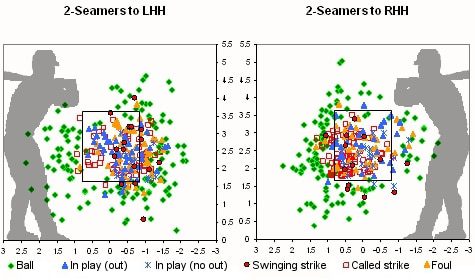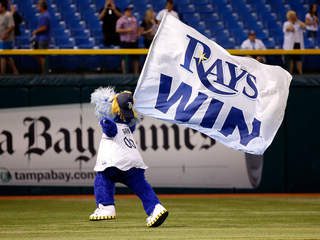
When it comes to discussing the best baseball analytics books, it is ironic that the modern adoption of analytics in baseball came from a baseball analytics book: Moneyball: The Art of Winning an Unfair Game by Michael Lewis.
However, sabermetrics (as baseball analytics is often referred to) was first termed by Bill James in 1980, as the “search for objective knowledge about baseball.” This search for objective knowledge has been around baseball for as long as the game as been played competitively (even in the 1900s, we saw people separating individual player statistics from team statistics).
Long before Michael Lewis found fame with Moneyball, the writing of Bill James found massive popularity in the 1980s. Hall of Fame manager Earl Weaver had a system of using index cards to perfectly adjust his platooning system and pitching rotation with the Orioles in the 1960s. And Branch Rickey hired Allan Roth, an advanced statistician, in the 1940s to deeply evaluate player performance with the Brooklyn Dodgers.
And, even a generation before that, Baseball Magazine editor F.C. Lane created a new statistical method that measured offensive production which resulted in his famed book, Batting.
That being said: if you want to get caught up and take a deep dive into analytics, it is important that you understand which are the best baseball analytics books. Here is our complete list for 2020.
Best Baseball Analytics Books
#1. The MVP Machine: How Baseball’s New Nonconformists Are Using Data to Build Better Players
In this book, authors Ben Lindberg and Travis Sawchick build upon the work of Michael Lewis and Moneyball and explain how every front office in MLB now uses advanced analytics and a data-driven approach and, because of this, how “smarter teams” no longer have huge advantages.
In an in-depth “behind the scenes look,” Lindberg and Sawchick report:
- How the 2017 Astros and 2018 Red Sox used technology to win the World Series
- How Jose Altuve and Mookie Betts became big sluggers and MVPs
- How new analytical tools have overturned traditional pitching and hitting techniques
In the end, the authors explain how – instead of out-drafting, out-signing, and out-trading their opponents, teams have now turned to out-developing opponents.
As well, the authors are authorities in the field. Lindbergh is a staff writer for The Ringer and Sawchik is a staff writer for FanGraphs as well as contributes to The Athletic.
#2. Astroball: The New Way to Win It All
We know, we now – the Astros cheated to win with the whole signal calling thing.
But, this fact remains: the Astros, more so than any other team in MLB, relied on data-driven approaches to player evaluation to put together one of the best teams of the decade.
The book explains how the Astros went from being the worst baseball team in half a century, to winning a stunning World Series just three years later. Author Ben Reiter (formerly a senior writer for Sports Illustrated) showcases how the team built a system that largely avoided the stats-versus-scouts divide by giving the human factor the largest role in the decision-making process.
#3. Analyzing Baseball Data with R
Have you ever wanted to do advanced analytics research on baseball yourself? If so, then this book will show you – step-by-step – how to do so.
The book presents to you an overview of how publicly available baseball datasets (such as the absolutely fantastic Lahman’s Database) and gives a gentle introduction to the type of data structures and exploratory and data management capabilities of R ( … R is an easy-to-use computer software for big data manipulation).
The authors are the book are absolute experts in the field. Max Marchi is currently a Baseball Analytics Specialist for the Cleveland Indians. Jim Albert is a Distinguished Professor of Statistics at Bowling Green and Ben Baumer is an Assistant Professor of Statistical and Data Sciences at Smith College.
Surprisingly, there are plenty of opportunities to take what you learn in this book, perfect it, and go on the job market as somebody who is able to do this work within the sphere of MLB.
#4. A Fan’s Guide to Baseball Analytics: Why WAR, WHIP, wOBA, and Other Advanced Sabermetrics Are Essential to Understanding Modern Baseball
When it comes to the best baseball analytics books, this is clearly a bit more of a “introduction” type book than the others.
In this book, long-time MLB reporter Anthony Castrovince takes on the role of explainer to help you understand why the old way of doing baseball stats no longer add up. After reading, you will have a better understanding of how modern stats evolved, what they ultimately convey, and how you can use this information to evaluate players of the present, past, and future.
#5. Big Data Baseball: Math, Miracles, and the End of a 20-Year Losing Streak
- Flatiron Books
Travis Sawchik’s Big Data Baseball is the story of the Pittsburgh Pirates’ climb out of the cellar. In this outstanding book, Sawchik takes readers on a behind the scenes journey to weave together the story of the many key figures who changed the way the Pirates played the game.
Specifically, he focuses on the culture of collaboration between the bright-eyed whiz-kid analysts and the graybeard coaches and how this relationship ultimately help revolutionize and uncover breaking ground in Pittsburgh.
As well, he covered how millions of data points were the magic the Pirates needed to finished the 2013 season above .500 for the first time in 20 years.
Sawchick is the author of the NYT’s Bestseller “Big Data Baseball” and currently writes for FiveThirtyEight.










